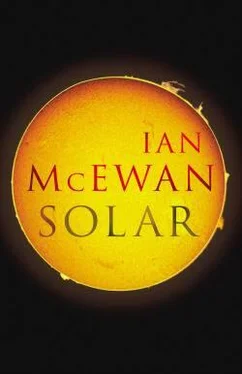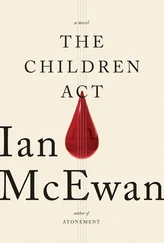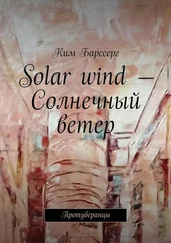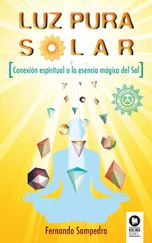It was an outrage. The train was beginning to slow, people were reaching for their coats, a computerised voice reminded passengers not to leave the train without their luggage. In a move that secured his triumph, the young man balled up in his fist the plastic bag and stuffed it into the waste bin under the table. Diligently, he used a hand to wipe the table clear of crumbs and grains of salt. Beard's humiliation was complete. This was how it was to grow older, to be pushed around by the young, the strong, and have no redress. With a warming touch of self-pity, he sensed that every injustice, every historical oppression, unwarranted invasion, chaotic warlordism, every tyrannical break with the rule of law was compacted in this moment, and he was bound by self-respect and his duty to underdogs everywhere to make a show of resistance. Otherwise, he could never live with himself. He lunged forward, seized his opponent's bottle of water, snapped off its top and drank deeply – he was thirsty anyway – drank it down to the bottom, every last drop of its twenty-five centilitres. He tossed the bottle on the table with a defiant, come-and-get-me look. The blue bottle cap rolled onto the floor.
The young man thought for a moment, then stood and stepped into the aisle, revealing his full height, somewhere around six two. Beard, already beginning to regret his defiance, remained in his seat, determined not to cringe. The man reached up, and with one smooth movement of his overdeveloped arm, he swung Beard's luggage to the floor, setting it down gently by its owner. If this was an act of contrition, Beard was not moved, and he returned a snarling look of contempt. His adversary hesitated a moment, gazing down at the older man with an expression of sorrow or pity, and then he turned and loped away down the compartment.
Beard let him get well clear before he stood. He never wanted to see the fellow again. A full minute passed before he stepped out onto the platform. Trembling a little now, with anger or shock, or a little of both, he had some difficulty getting himself into his coat – its belt was tangled around a sleeve. His shoelace was loose. As he kneeled to retie it with fingers not yet fully obedient, he remembered his heap of newspapers and decided to leave them where they were. At last, more or less composed, he made his way along the platform towards the ticket barrier. This was the moment that would remain with him, and come to stand for every recalculation he would ever make about his past, every revised or improved perspective he would ever gain on his own history, his own stupidity and other people's motives. He had stopped twenty feet short of the barrier. He set his wheeled luggage on end and reached under his coat into his jacket pocket for his ticket. There was something else in there, something plastic, bulky, lightweight, crunchy. There came to him a confused childhood memory of a magic trick at a village fete, when some master of the art had pulled from ten-year-old Michael Beard's ear an egg, or rabbit or chicken, something physically impossible, just like this: his crisps, the ones he had already eaten. He pulled the bag clear and, stupefied, stared at it, the Union Jack, the dancing cartoon animals, willing them to melt away. And that other bag? What a cascade of recalibration of every instant, every impulse, of the nature of the man he never wanted to see again, and of how he, Beard, must have seemed – a vicious madman.
He was so entirely in the wrong that for the moment it felt like liberation, strangely like joy. There could be no excuses, he had no defence. He also felt a mirthless impulse to laugh. His error was so unambiguous, so unsullied, he stood so completely revealed to himself, a naked fool, that he felt purified and redeemed, like a penitent, like an elated medieval flagellant with a newly flayed back. That poor fellow whose food and drink you devoured, who offered you his last morsels, fetched down your luggage, was a friend to man. No, no, that was not for now, the agony of retrospection must be postponed.
Despite the need to hurry to his appointment, he remained on the busy platform a good while, below the distant glass roof and its clattering echoes, while passengers stepped around him, and he held the bag of crisps against his chest, feeling himself, quite mistakenly, intensely illuminated.
In the taxi from Paddington to the Savoy he reminded himself to be careful, for he was feeling accident-prone and was about to speak in public, and afterwards, in the conference interval, was contractually bound to mingle, and might well confront journalists, men and women whose outward appearance of humanity and intelligence masked cold-hearted predation. They knew from past successes that he could be coaxed into indiscretion, or an expansive hypothesis – wasn't free-thinking his duty? – which would appear crazed or dimwitted in print, once stripped of all conditionals, all hedging, all playfulness. A speculative remark had already cost him the headline 'Nobel Prof: End Is Nigh'.
His own end – it seemed like that at the time – came only last year, and the curious thing was that people had already started to forget. This amounted to a kind of forgiveness. It was generally known there had been a fuss, a stirring of the news currents around Michael Beard, but the details were blurring. He had been proved wrong about something, or was he in the right all along? Did he assault someone, or was he the victim? Didn't that someone get arrested? Back then, as the storm broke, a colleague, an eminence in computer modelling, told him that the picture of the Nobel prizewinner being led handcuffed through a jeering crowd was carried in four hundred and eighty-three newspapers. This fact remained with Beard, his humiliation had been planetary, but it seemed to have remained with no one else. New material had befuddled the public memory, fresh scandals, sporting events, confessions, war, celebrity gossip and the tsunami had wiped clean his slate. A twelve-month torrent, swelling steadily, had carried him to safer ground.
Even his own recollection of the events, their precise emotional tone, was beginning to fragment. To be the focus of press attention was to experience a form of vertigo and bewilderment. Mercifully, his own particular memory stain was fading to an indistinct watermark. But certain details remained sharp, kept alive by the retelling. He believed that anecdotes were a blight on conversation, and yet still he went on telling them. He often related how it was not the case that the feel of handcuffs on the skin was of cold steel, as one reads in detective novels. Those placed on him had been warmed by a long morning inside the armless gabardine jacket of the arresting policewoman. It was the intimate snugness of the fit around his wrists, the feel of transferred body warmth, that was sinister. Likewise, the cliché was that whenever you read a press story on any subject of which you had personal knowledge, there was at least one salient fact wrong. But that was not his experience. He marvelled at the unearthing of a quantity of accurate facts about himself. The distortion was in the way in which they were juxtaposed, wrought into fresh implication, millimetres beyond the reach of a libel lawyer. And he was impressed too by the research, by how these restless newspaper types had, in a matter of a day or two, penetrated deep into the obscure quarters, into the slums of an overcrowded personal life, drawing in one instance a bounty of malice from his third wife's older brother, a near-mute recluse who had always loathed Beard and who lived without a telephone by a dirt track along a deserted north-westerly peninsula on Bruny Island off the coast of Tasmania.
The press upended Beard's life as one might a wastepaper basket. A couple of shakes, and there tipped into view all kinds of half-forgotten scraps. In other circumstances it might have been a service worth paying for. Independently of each other, his ex-wives, good old Maisie, Ruth, Eleanor, Karen and Patrice, refused to talk to the press. That touched him deeply. Of the past lovers, most were loyal, and only a rump spoke up: one lab assistant, one office administrator. There were also two scientists, failures, nobodies, both of them. Intriguingly, there were also some impostors. The Last Trump sounded, and from their graves and catacombs this pint-sized crowd of ex-lovers and pretenders crawled towards the light, to stand before their Maker, a journalist with a chequebook, and denounce Beard as a woman-hater, an exploiter, a louse.
Читать дальше












